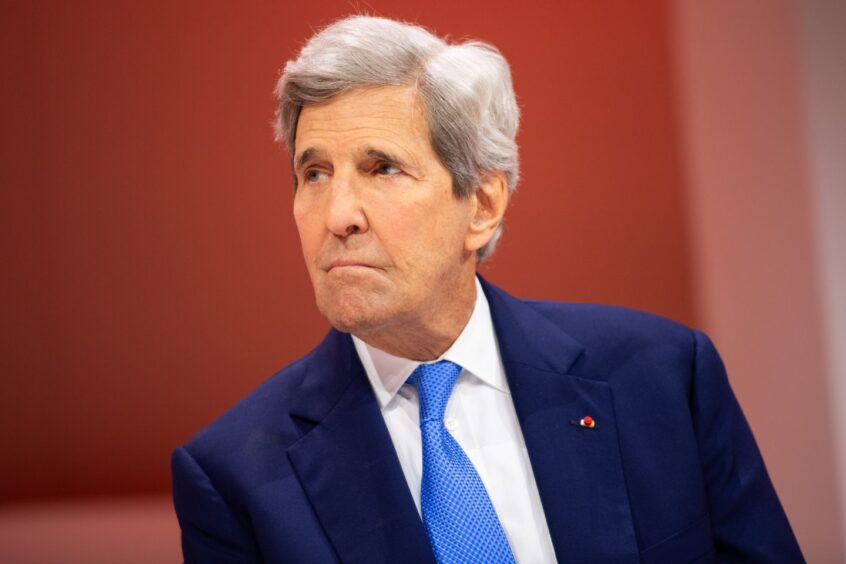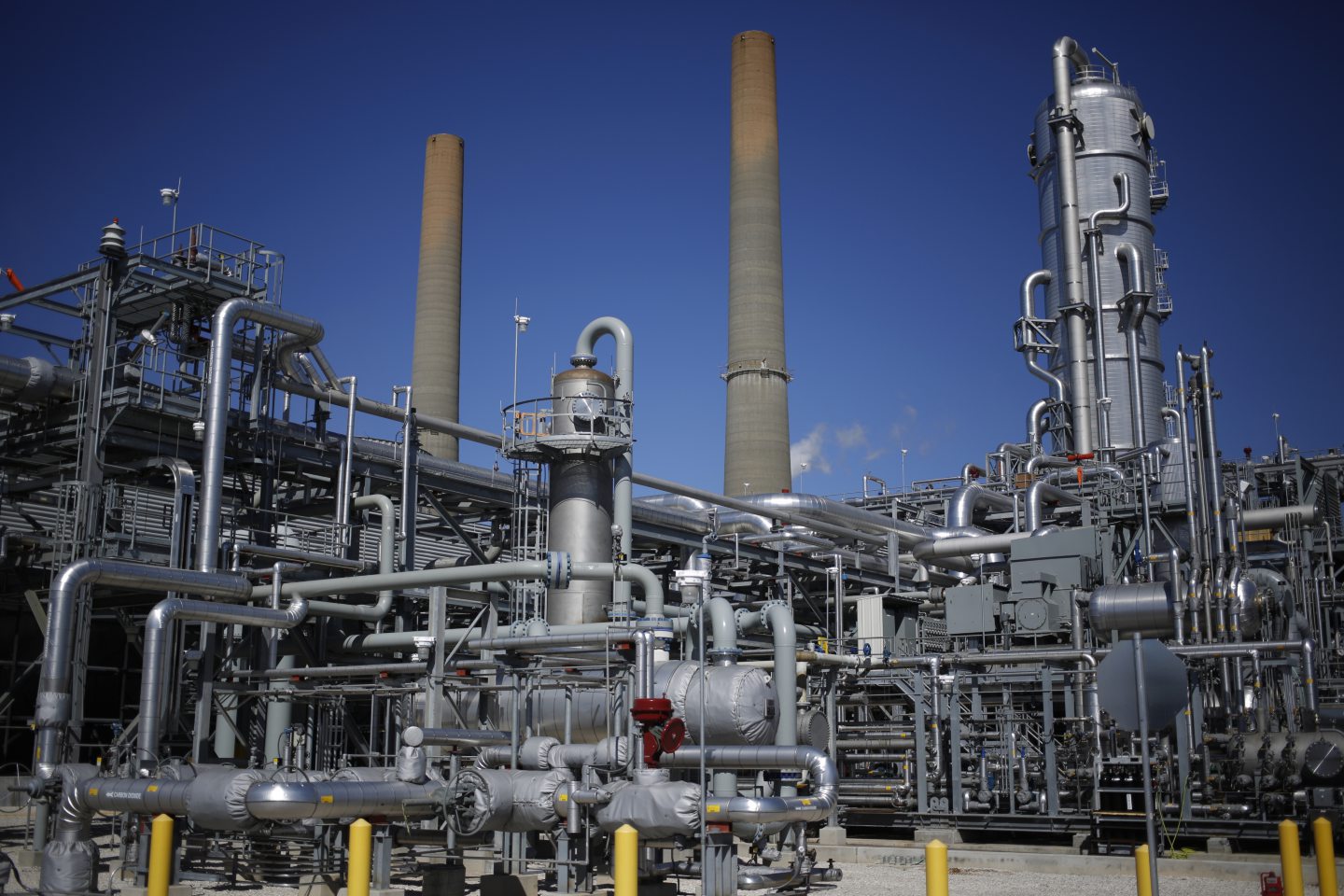
John Kerry, the Biden administration’s former top climate diplomat, said the oil and gas industry must prove carbon capture can play a meaningful role lowering emissions or face a quicker-than-expected transition away from fossil fuels.
Carbon capture utilization and storage is one of the oil industry’s favored decarbonization tools because it professes to continue the use of fossil fuels while removing their emissions. But it’s expensive and largely unproven at the vast scale needed to reach net zero without phasing down oil and gas.
“If you’re in oil and gas, and you can go out there and capture the emissions, hallelujah,” Kerry said at the Gastech conference in Houston on Wednesday. “But if you can’t do that we’re going to have a bigger and faster transition than people think.”
Kerry helped broker a historic deal that committed the world to a transition away from all fossil fuels for the first time at the COP28 climate talks in Dubai last year. Major fossil-fuel-producing countries including the United Arab Emirates signed on, in part due to their optimism about carbon capture, a view shared by all the world’s major oil companies.
The US built generous tax credits for CCUS into the Inflation Reduction Act in the hope that the technology will take off. Even so, its high cost and complexity means that few projects are yet to get off the ground. Climate groups have claimed that it’s merely a ruse to prolong the life of fossil fuels and have said it would be better to move straight to cleaner forms of energy.
Kerry appeared to express sympathy with this view.
“Both Stanford and MIT climate experts, professors, people whose life is wrapped up in making these decisions, right now do not believe that storage, that CCUS is going to be scalable and affordable,” he said. “So it’s up to the industry to prove that it is.”
Kerry also defended the Biden administration’s decision to pause export licenses for new liquefied natural gas export projects in order to study their environmental impact. It’s incumbent on the industry to demonstrate that LNG reduces rather than adds to emissions, he said.
“If gas and oil are not able to capture the emissions at a scalable and affordable rate, they are not going to be part of that winning side,” Kerry said.
 © Bloomberg
© Bloomberg